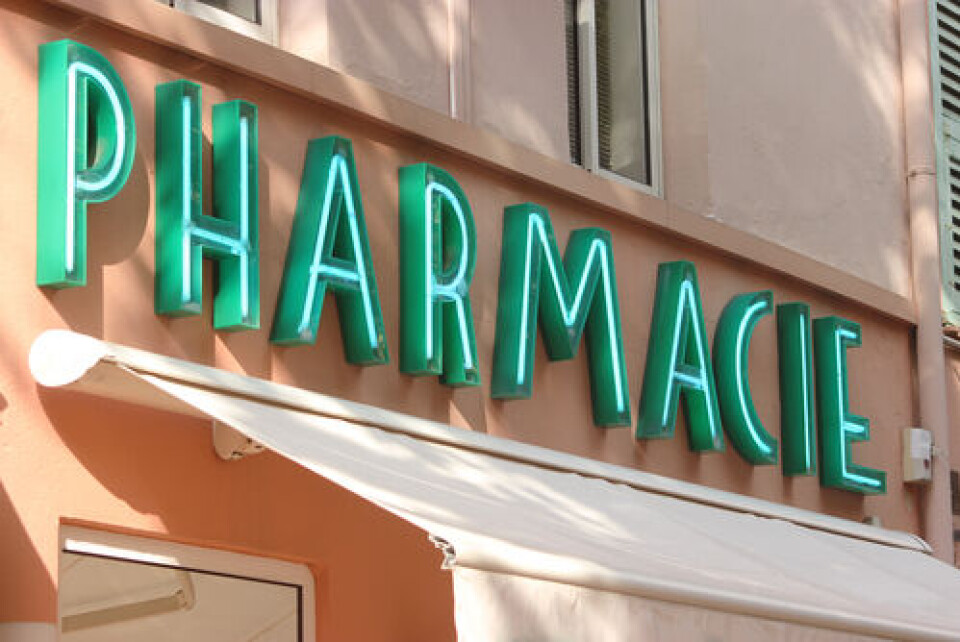-
Britons are the largest foreign community of second-home owners in Nouvelle Aquitaine
See which other departments in the region are popular with British nationals
-
Travellers risk extra costs under new Eurotunnel ticket rule
Some fare options are less flexible and less forgiving of lateness
-
May will be difficult month for train travel in France, warns minister
Two major train unions are threatening to strike and are ‘not willing to negotiate’, he says
French pharmacists offer medical consultations in new trial
Fifty pharmacies in Brittany are now able to advise patients who have 13 common symptoms, in an effort to compensate for a lack of doctors

Fifty pharmacies have begun offering medical consultations as part of a trial aimed at improving healthcare access in areas that lack doctors.
Read more: Eight facts to understand France’s issue of medical deserts
The pharmacists, all of whom are based in Brittany, are able to advise patients on 13 common conditions: rhinitis, pain while urinating, conjunctivitis, back pain, tick bites, diarrhoea, cuts, vaginitis, first-degree burns, headaches, dyspepsia, and constipation.
Patients who arrive at the counter showing any of these symptoms are invited for a consultation in a private corner of the pharmacy without needing an appointment.
After identifying the problem, the pharmacist will either recommend a treatment or suggest they see a doctor or go to A&E.
The treatment usually means suggesting a particular medicine but the programme also allows pharmacists to remove ticks.
Martine Costedoat, managing director of Pharma Système Qualité, the association running the experiment, said: “It is a response to people who do not have access to a GP because otherwise what will they do?
‘Emergency rooms saturated’
“They tend to go to hospital, but emergency rooms are saturated. It’s a door which opens into the health system in areas where there are no doctors.”
Read more: Non-emergency patients saturating French hospital urgencies
Read more: French emergency services: Why it is now harder to reach 15 number
In Brittany, that applies to rural areas, but equally to coastal towns where the population expands during the summer.
For each of the 13 conditions, the pharmacists will consult a decision tree, meaning a greater uniformity of advice than is otherwise available in pharmacies.
“It’s reassuring for the pharmacist, who knows the warning signs to send somebody to A&E, and for the patient.”
The Pharmacie Roche in Rieux, which is participating in the pilot phase, is in an area, around Redon in Ille-et-Vilaine, where there are half as many doctors as the national average.
Read more: Dangerous conditions in 127 hospitals and emergency units France
The consultations are “more or less what we were already doing, but more supervised, recognised, and remunerated”, said pharmacist Didier Roche. “When we give advice on a daily basis, we don’t always think about certain questions. Here, everything is taken into consideration.
“There have been times when we were submerged by Covid tests and vaccinations and this aspect was a bit neglected, but the patients are very happy.”
With the patient’s permission, the pharmacist will also inform their GP of their symptoms and treatment.
The 50 pharmacies began consultations in April, with the experiment set to run until December next year.
1,132 patients seen by end of August
By the end of August, 1,132 patients had been seen, three-quarters of whom had their problem taken care of in the pharmacy without having to see a doctor.
As well as avoiding unnecessary trips to A&E, the programme has also alerted patients who needed urgent medical care.
Ms Costedoat said: “Half of the patients would otherwise have gone either to the doctor or to A&E. In 25% of cases where patients did not want to see a doctor, they are subsequently referred to the doctor.”
Mr Roche added: “For a case of cystitis, we sent someone to their GP, who told her to go to A&E, and in the end she was hospitalised.
“She came back to thank us as she would not otherwise have gone to the doctor since she didn’t think it was urgent.”
When pharmacists called in the days following consultations, 99% of patients said they were satisfied with the process.
The consultations cost €15 and are directly funded by social security, meaning patients have nothing to pay.
The OSyS (Orientation dans le Système de Soins) programme falls under Article 51 of the 2018 ‘social security funding law’ which allows for new modes of organising and funding healthcare to be tested at local level before possibly being extended to the rest of France.
It is financed by Brittany’s regional health authority and the health ministry.
Related links
French government adopts plans for a single emergency telephone number
Making 112 the only emergency number in France would be an error says SAMU ambulance union head
How to make medical information available to French emergency services via smartphone lock screen
























